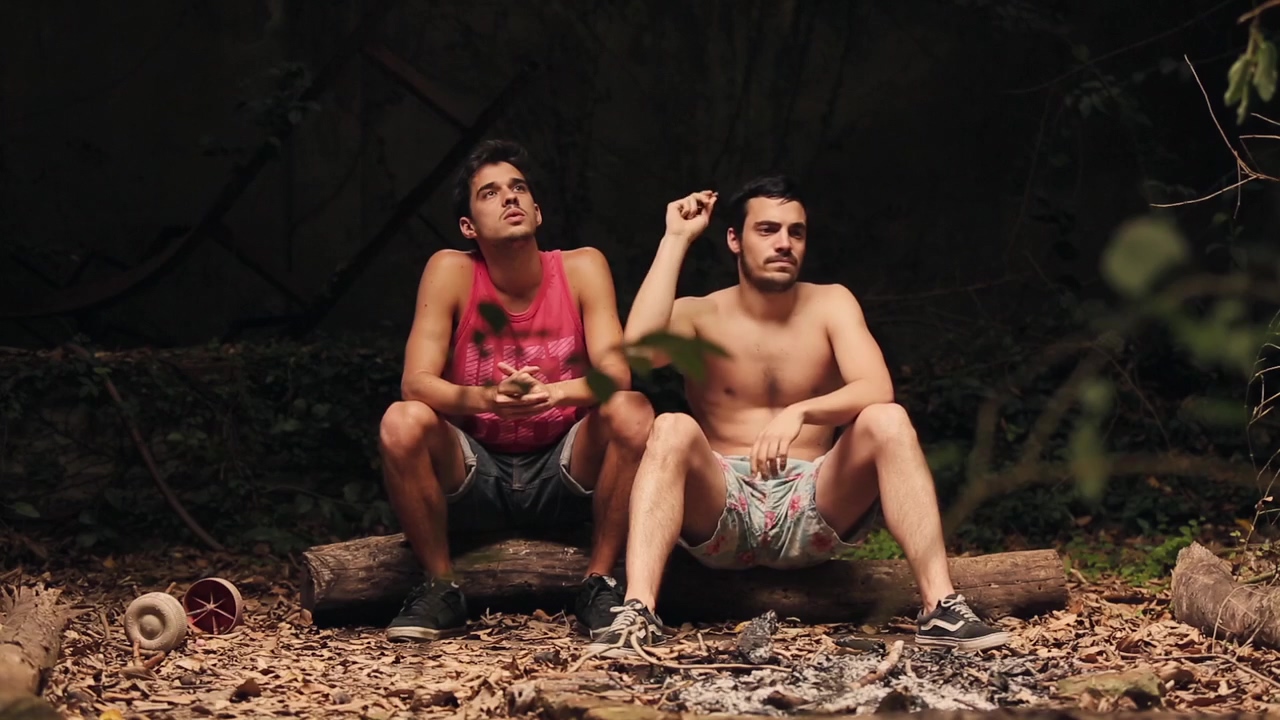Taekwondo (2016) is a tender and sensual coming-of-age film that explores friendship, identity, and the complexities of unspoken desires. Set in the warmth of a summer getaway, the story revolves around Fernando, who invites his friend Germán to join him and a group of male friends at a secluded countryside house. Germán, who is more reserved and somewhat of an outsider, quickly finds himself intrigued not only by the laid-back atmosphere but especially by Fernando’s disarming openness.
As the days pass, the group engages in the casual camaraderie of sunbathing, swimming, drinking, and playful teasing. Beneath the surface, subtle glances and small gestures start to build a quiet tension between Fernando and Germán. The film captures these moments with a lingering intimacy, allowing their connection to grow organically without overt declarations or dramatic confrontations.

What makes Taekwondo stand out is its masterful portrayal of male intimacy, both physical and emotional, without defaulting to stereotypes or sensationalism. The film celebrates the fluidity of affection among men, blurring the lines between platonic and romantic, while gently questioning what it means to be truly comfortable with one’s own desires.
Director Marco Berger, known for his slow-burning narratives, uses silences and close-ups to powerful effect. Every shared glance, every brush of skin, is loaded with emotion. The naturalistic performances from the cast enhance the feeling of authenticity, making the viewer feel like a quiet observer of something private and real.

The setting plays a crucial role in the story’s mood—sun-drenched, lush, and free from the constraints of the outside world. It’s a kind of paradise where time seems to pause, allowing the characters to explore themselves and each other away from societal pressures and labels.
Germán’s inner conflict is portrayed with subtlety. His growing attraction to Fernando clashes with his uncertainty, creating a beautiful yet fragile tension. Fernando, on the other hand, remains an enigma—playful and bold, yet also caring and emotionally intelligent. Their evolving dynamic becomes the emotional core of the film.

Taekwondo is not a film about big plot twists or dramatic climaxes. It’s a meditation on attraction, on the space between words, and on the courage it takes to be vulnerable. The film invites viewers to slow down and feel every moment, to see the beauty in the unsaid and the powerful impact of simple, human connection.
Ultimately, Taekwondo is a gentle but powerful film that captures the aching sweetness of desire and friendship on the edge of something more. It's a love story that breathes with real emotion and lingers long after the credits roll.




